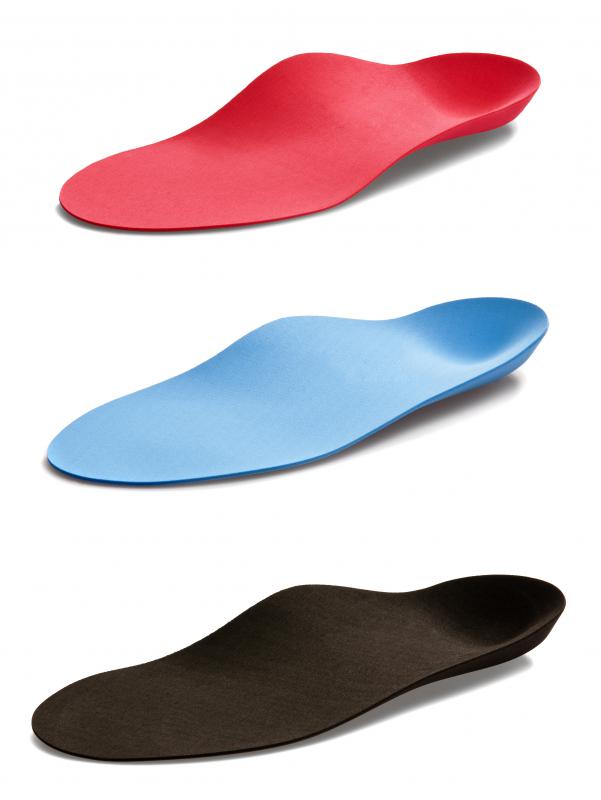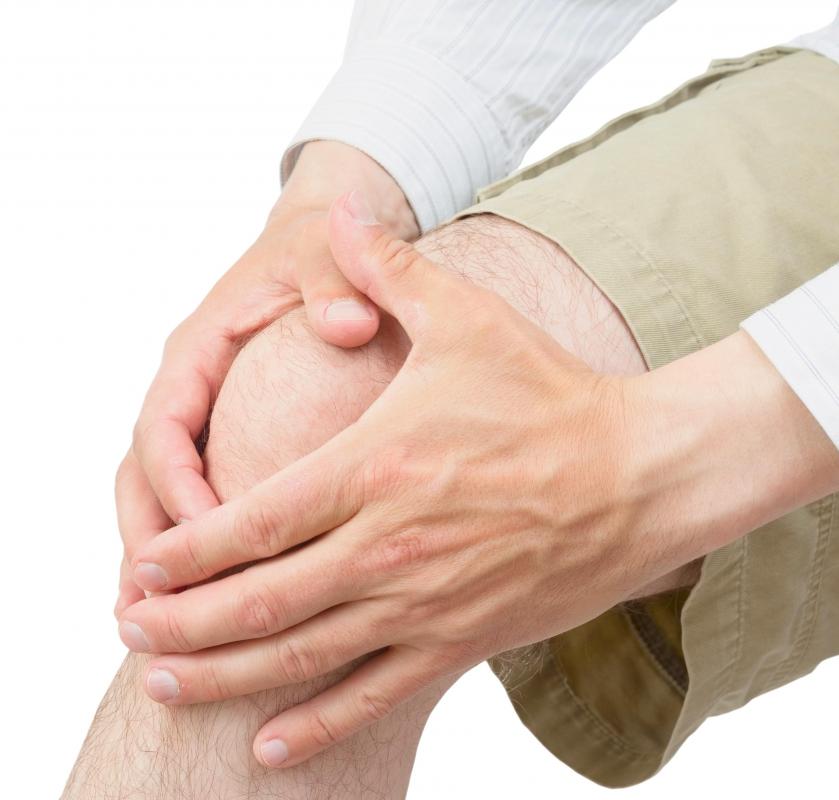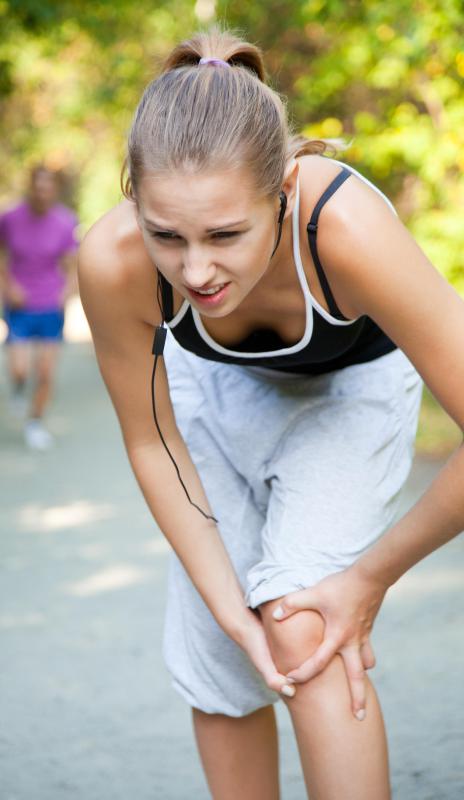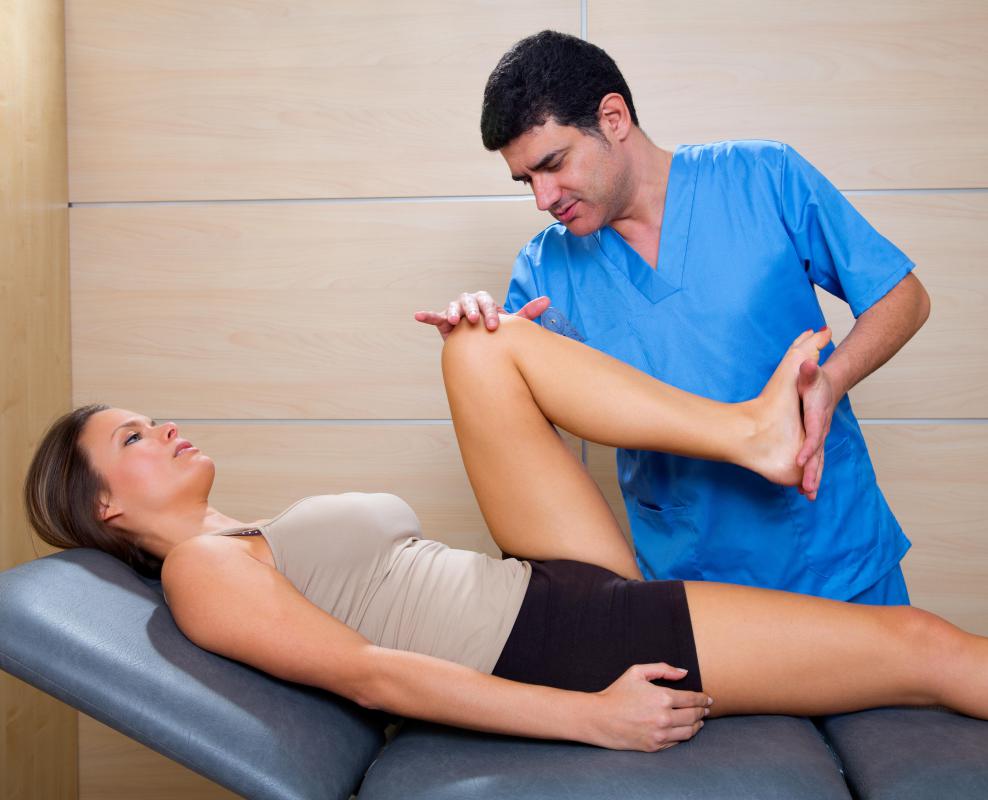At WiseGEEK, we're committed to delivering accurate, trustworthy information. Our expert-authored content is rigorously fact-checked and sourced from credible authorities. Discover how we uphold the highest standards in providing you with reliable knowledge.
What is Runner's Knee?
Runner's knee, also known as patellofemoral pain syndrome, is a disorder of the knee which commonly affects athletes. In a person with runner's knee, the knee is painful, especially when it is being worked, and it may feel hot to the touch or throb after workouts. This problem is not limited to runners; any athlete involved in a sport which works the knee hard, such as skiing, can develop runner's knee. There are a number of treatment options available for runner's knee, and it's important to remember that early intervention is important. At the first sign of strain and pain, an athlete should provide treatment.
The problem does not usually originate in the knee. Runner's knee is more typically caused by bad running form, which may be the result of poor training, or the result of a runner's anatomy. People with flat feet, knock knees, and unusual natural gaits can develop runner's knee. Likewise, people with underdeveloped muscles in their legs and individuals who overtrain can hurt their knees.

What happens with runner's knee is that the kneecap moves slightly out of alignment, putting pressure on the underlying cartilage in the knee. The cartilage becomes inflamed and starts to wear away, causing inflammation and pain across the knee. In addition, the bones in the joint start scraping against each other, which causes further pain. The pain is usually centered around the front of the knee.

The immediate treatment for runner's knee is RICE: rest, ice, compression, and elevation. This brings down the inflammation and gives the knee a chance to start healing. If RICE therapy is provided at the first onset of pain, it may resolve the issue, especially if the athlete focuses on stretching well before working out, warming up and cooling down properly, and working on form. A personal trainer can provide tips, and some athletes may find that it helps to wear shoe inserts and other devices to improve their stance and gait.

If runner's knee is allowed to persist without treatment, it may become necessary for more aggressive treatment beyond the basic rest, ice, compression, and elevation. This treatment can include physical therapy as well as surgery. Surgical procedures are performed to remove damaged tissue, and sometimes to rebuild parts of the knee in cases of extreme damage. After surgery, the athlete will need to engage in physical therapy to rebuild strength and learn to use the knee safely.
AS FEATURED ON:
AS FEATURED ON:

















Discussion Comments
This sounds like what I have but my knee also pops not out of place but makes popping sounds. and like it gets stiff when I start to walk and I'm scared to unbend because it feels like it's going to pop out of place.
I bought a knee brace but that doesn't really work and I don't know what to do because it started after cheer camp, so I think I messed up my knee at cheer camp.
Post your comments